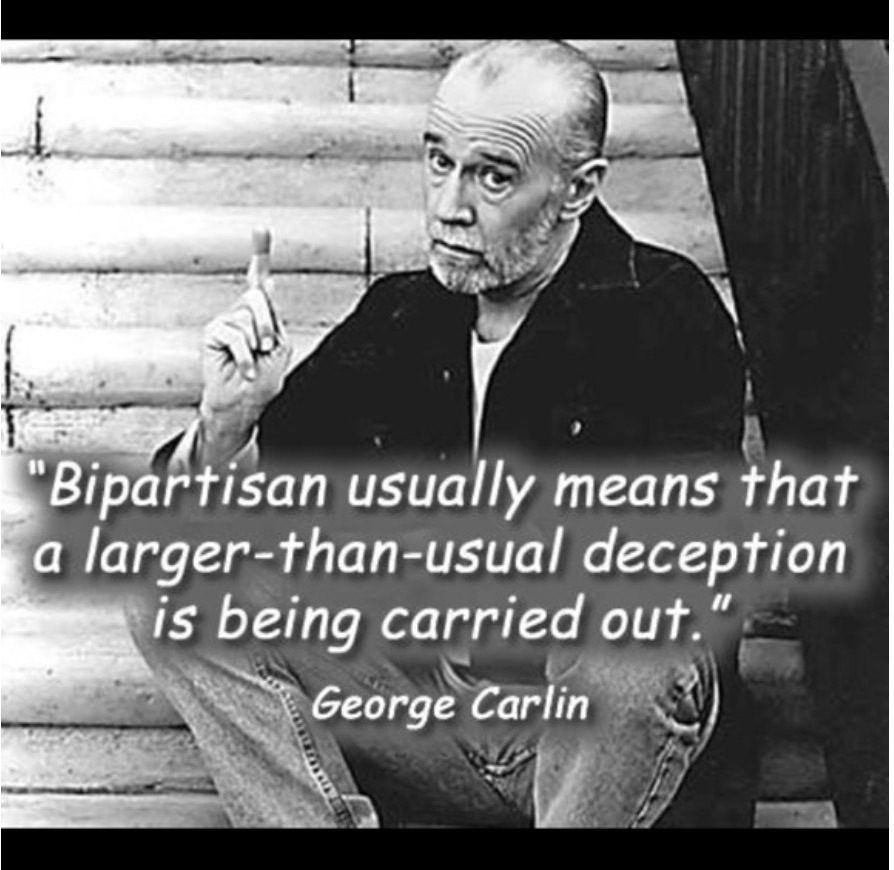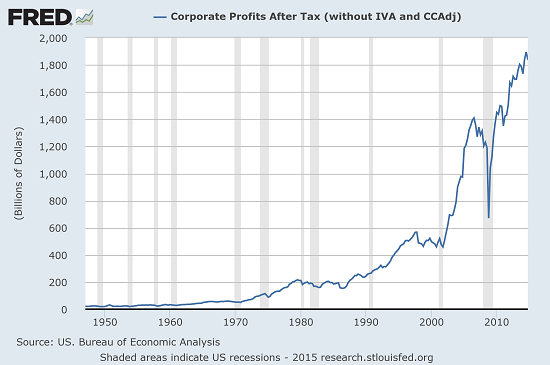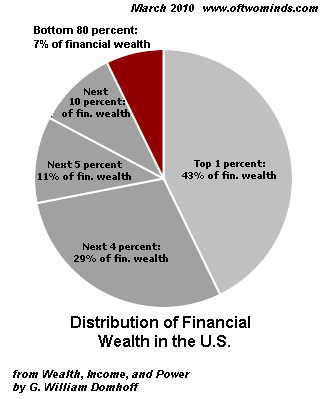Michael Krieger
Liberty Blitzkrieg: June 5, 2015
If it sounds complicated, it is. The important point is that this trade agreement contains a crucial discussion of governments’ abilities to meaningfully protect civil liberties. And it is not being treated as a human rights discussion. It is being framed solely as an economic issue, ignoring the implications for human rights, and it is being held in a classified document that the public is now seeing months after it was negotiated, and only because it was released through WikiLeaks.
The process is also highly secretive—in fact, trade agreement texts are classified. While the executive branch does consult with members of Congress, even congressional staffers with security clearance have until recently been prevented from seeing the texts. Furthermore, certain trade industry advisers are allowed access to U.S. negotiating objectives and negotiators that the public and public interest groups do not have.
– From the Slate article: Privacy Is Not a Barrier to Trade
If you haven’t heard about about the Trade in Services Agreement, aka TISA, don’t worry, you’re not alone. While I had heard of it before, I never read anything substantial about it until today. What sparked my reading interest on the subject were a series of very troubling articles published via several media outlets following a document dump by Wikileaks. Here’s how the whistleblower organization describes the TISA leak on it document release page:
WikiLeaks releases today 17 secret documents from the ongoing TISA (Trade In Services Agreement) negotiations which cover the United States, the European Union and 23 other countries including Turkey, Mexico, Canada, Australia, Pakistan, Taiwan & Israel — which together comprise two-thirds of global GDP. “Services” now account for nearly 80 per cent of the US and EU economies and even in developing countries like Pakistan account for 53 per cent of the economy. While the proposed Trans-Pacific Partnership (TPP) has become well known in recent months in the United States, the TISA is the larger component of the strategic TPP-TISA-TTIP ‘T-treaty trinity’. All parts of the trinity notably exclude the ‘BRICS’ countries of Brazil, Russia, India, China and South Africa.
I’ve covered the extreme dangers of what’s colloquially known as trade “fast track” authority previously. In the post, As the Senate Prepares to Vote on “Fast Track,” Here’s a Quick Primer on the Dangers of the TPP, I noted:
Passing this corporate giveaway masquerading as a “free trade deal” is a lengthy process; a process that begins today with a Senate vote on Trade Promotion Authority (TPA), also known as “fast track.” Passing TPA would be Congress agreeing to neuter itself to a yes or no vote on a trade pact and ceding its power to amend it. Even worse, it would give trade deals this expedited process for six years, thus outlasting the current Administration, and applying to other “trade” deals like the TTIP. Mind you, TPA is being voted on while the TPP text remains completely hidden from the public.
Naturally, “fast track” ultimately passed through the corrupt, rancid body known as the U.S. Senate despite the best efforts of people such as Elizabeth Warren to stop it. As noted in the above paragraph, fast track isn’t just about the TPP, it covers other deals already well in the works such as TTIP and TISA. Makes you wonder whether these other deals are even worse.
For more information on TISA, let’s turn to the Huffington Post:
The latest leak purports to include 17 documents from negotiations on the Trade In Services Agreement, a blandly named trade deal that would cover the United States, the European Union and more than 20 other countries. More than 80 percent of the United States economy is in service sectors.
According to the Wikileaks release, TISA, as the deal is known, would take a major step towards deregulating financial industries, and could affect everything from local maritime and air traffic rules to domestic regulations on almost anything if an internationally traded service is involved.
The pact would be one of three enormous deals whose passage through Congress could be eased with passage of Trade Promotion Authority, also known as fast-track authority. The Senate has passed fast-track, and it could be taken up in the House this month.
“Today’s leaks of TISA (trade in services) text reveal once again how dangerous Fast Track Authority is when it comes to protecting citizen rights vs. corporate rights,” he added. “This TISA text again favors privatization over public services, limits governmental action on issues ranging from safety to the environment using trade as a smokescreen to limit citizen rights.”
The Office of the United States Trade Representative and top European officials have repeatedly denied that TISA or the Transatlantic deal would impact local laws, releasing a joint statement to that effect earlier this spring.
Still, the Wikileaks documents suggest that World Trade Organization-style tribunals would be expanded under TISA, and that such tribunals convened to resolve trade disputes can impact local laws. One such WTO tribunal ruled last month that the United States must repeal its laws requiring meat to be labeled with its country of origin, or face punitive tariffs on exports.
I covered this ruling a couple of weeks ago in the post: Congress Moves to Eliminate Labels Showing Consumers Where Meat Comes from Following WTO Ruling
Moving along to the UK Independent’s coverage of TISA:
Wikileaks has warned that governments negotiating a far-reaching global service agreement are ‘surrendering a large part of their global sovereignty’ and exacerbating the social inequality of poorer countries in the process.
The Trade in Services Agreement exposed in a 17 document dump by Wikileaks on Thursday relates to ongoing negotiations to lock market liberalizations into global law.
Under the agreement, retailers like Zara or Marks & Spencers would have the right to open stores in any of the signing countries and be treated like domestic companies. A nationalized service, such as the British telecoms industry in the eighties, would have to ensure it was not harming competition under these terms.
Wikileaks says that corporations would be able to use the law in its current form to hold sway over governments, deciding whether laws promoting culture, protecting the environment or ensuring equal access to services were ‘unnecessarily burdensome’, or whether knowledge of indigenous culture or public services was essential to achieve ‘parity’.
“In other words, unaccountable private ‘trade’ tribunals would decide how countries could regulate activities that are fundamental to social well-being,” Wikileaks said.
No wonder these deals are being keep so secret. Let’s now turn to Slate, which examined TISA’s potential threat to a human right that is increasingly under attack: personal privacy.
On Wednesday, WikiLeaks released the draft text of the biggest international agreement you’ve probably never heard of: the Trade in Services Agreement, or TISA. And buried in one of the 12 leaked chapters (which are mostly on things like “air transport services” and “competitive delivery services”) is a volatile and crucial debate about online privacy and the global Internet.
Trade agreements used to focus on things like tariffs, but they aren’t just about trade anymore. They consist of hundreds of chapters of detailed regulations, on subjects ranging from textiles to intellectual property law. TISA purports to promote fair and open global competition in services, thus increasing jobs. (You may have also heard about the Trans-Pacific Partnership, another trade agreement currently being negotiated and criticized. This one’s even more mammoth.) TISA is being negotiated between 23 countries representing some 75 percent of the global services market. Buried in its e-commerce annex are rules that will reshape the relationship between the free flow of information and online privacy.
The Internet is global, but privacy regulations incorporate localized norms. The U.S., for example, protects only some things, like your video-watching history and health information, while the European Union has a comprehensive framework for safeguarding far more information.
But TISA is different. The leaked draft language, proposed by the U.S. and several other countries, states that a government may not prevent a foreign services company “from transferring, [accessing, processing or storing] information, including personal information, within or outside the Party’s territory.” Essentially, this says that privacy protections could be treated as barriers to trade. This language could strike most privacy regulations as they apply to foreign companies—and not just in the EU. It would also apply to U.S. regulation of foreign companies at home. For instance, U.S. health privacy law requires patient consent for health information to be shared. This, technically, is a restriction on transferring information that could be invalidated by TISA, if nothing changes.
The subject matter TISA covers is already governed by a global agreement called GATS, which has an exception for privacy protections. In other words, privacy protections are explicitly not treated as trade barriers in GATS. The leaked draft language from TISA shows that there is an ongoing debate between countries over whether to create an explicit privacy exception within TISA itself. The result of this debate is hugely important for states that want privacy laws.
If it sounds complicated, it is. The important point is that this trade agreement contains a crucial discussion of governments’ abilities to meaningfully protect civil liberties. And it is not being treated as a human rights discussion. It is being framed solely as an economic issue, ignoring the implications for human rights, and it is being held in a classified document that the public is now seeing months after it was negotiated, and only because it was released through WikiLeaks.
TISA’s contents are not all bad, and protection of an open global Internet through trade could theoretically be a good thing. But these fine points should be openly debated, not bartered away in an enormous agreement that bundles privacy together with maritime transport services.
The process is also highly secretive—in fact, trade agreement texts are classified. While the executive branch does consult with members of Congress, even congressional staffers with security clearance have until recently been prevented from seeing the texts. Furthermore, certain trade industry advisers are allowed access to U.S. negotiating objectives and negotiators that the public and public interest groups do not have.
Trade agreements governing civil liberties (and jobs, and the environment, and public health … ) need to receive meaningful input from the public and its real representatives—not after negotiations are concluded, not through a Congress hampered by excessive executive secrecy, and not through vague negotiating objectives that fail to meaningfully address human rights and other values.
Fast track just passed in the Senate. Senators including Bernie Sanders of Vermont, Elizabeth Warren of Massachusetts, and Sherrod Brown of Ohio tried to stop its passage but narrowly lost. Now, the vote is coming up in the House—maybe as soon as this week. About 2 million Americans have already signed a petition against the legislation. It would be sad indeed if one of the few times Congress decides to actually pass legislation, embrace bipartisanship, and show support of the president is a law that enables states to bargain away citizens’ freedoms behind closed doors.
Actually, it would’t be sad, it would make perfect sense. As George Carlin so accurately noted:

Finally, from the New Republic:
On Wednesday, WikiLeaks brought this agreement into the spotlight by releasing 17 key TiSA-related documents, including 11 full chapters under negotiation. Though the outline for this agreement has been in place for nearly a year, these documents were supposed to remain classified for five years after being signed, an example of the secrecy surrounding the agreement, which outstrips even the TPP.
TiSA has been negotiated since 2013, between the United States, the European Union, and 22 other nations, including Canada, Mexico, Australia, Israel, South Korea, Japan, Norway, Switzerland, Turkey, and others scattered across South America and Asia. Overall, 12 of the G20 nations are represented, and negotiations have carefully incorporated practically every advanced economy except for the “BRICS” coalition of emerging markets (which stands for Brazil, Russia, India, China, and South Africa).
The deal would liberalize global trade of services, an expansive definition that encompasses air and maritime transport, package delivery, e-commerce, telecommunications, accountancy, engineering, consulting, health care, private education, financial services and more, covering close to 80 percent of the U.S. economy. Though member parties insist that the agreement would simply stop discrimination against foreign service providers, the text shows that TiSA would restrict how governments can manage their public laws through an effective regulatory cap. It could also dismantle and privatize state-owned enterprises, and turn those services over to the private sector. You begin to sound like the guy hanging out in front of the local food co-op passing around leaflets about One World Government when you talk about TiSA, but it really would clear the way for further corporate domination over sovereign countries and their citizens.
You need to either be a trade lawyer or a very alert reader to know what’s going on. But between the text and a series of analyses released by WikiLeaks, you get a sense for what the countries negotiating TiSA want.
First, they want to limit regulation on service sectors, whether at the national, provincial or local level. The agreement has “standstill” clauses to freeze regulations in place and prevent future rulemaking for professional licensing and qualifications or technical standards. And a companion “ratchet” clause would make any broken trade barrier irreversible.
No restrictions could be placed on foreign investment—corporations could control entire sectors.
Corporations would get to comment on any new regulatory attempts, and enforce this regulatory straitjacket through a dispute mechanism similar to the investor-state dispute settlement (ISDS) process in other trade agreements, where they could win money equal to “expected future profits” lost through violations of the regulatory cap.
For an example of how this would work, let’s look at financial services. It too has a “standstill” clause, which given the unpredictability of future crises could leave governments helpless to stop a new and dangerous financial innovation. In fact, Switzerland has proposed that all TiSA countries must allow “any new financial service” to enter their market. So-called “prudential regulations” to protect investors or depositors are theoretically allowed, but they must not act contrary to TiSA rules, rendering them somewhat irrelevant.
Most controversially, all financial services suppliers could transfer individual client data out of a TiSA country for processing, regardless of national privacy laws. This free flow of data across borders is true for the e-commerce annex as well; it breaks with thousands of years of precedent on locally kept business records, and has privacy advocates alarmed.
(read the full article at Liberty Blitzkrieg)




